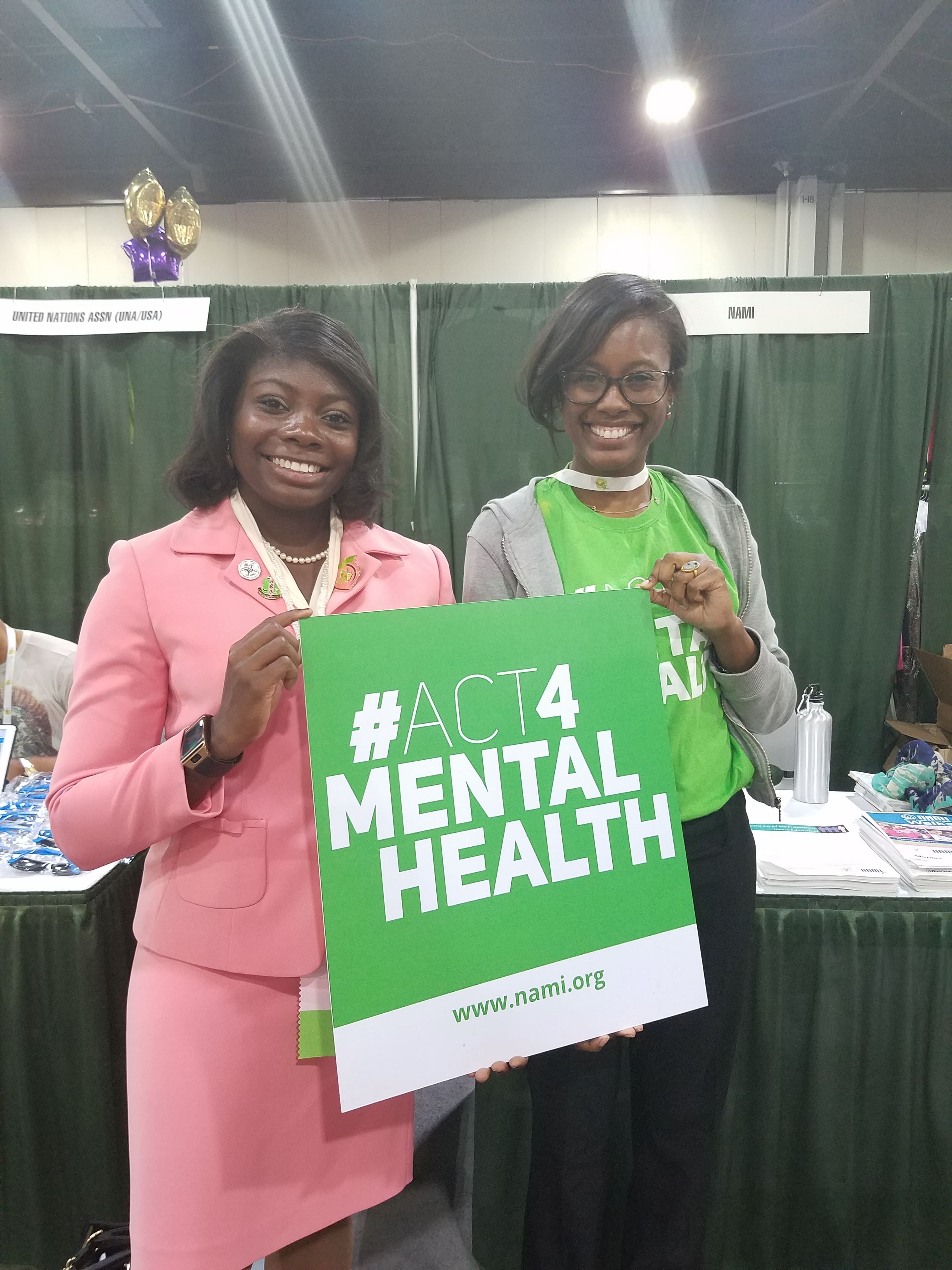July 15, 2016
By Kayla Sharpe

July is Minority Mental Health Month and I know what some of you may be thinking: Doesn’t the distinction of minority mental health further divide and isolate minority communities? Doesn’t the oversaturation of “diversity” cheapen the term and make it no more than an overused buzzword? Doesn’t an entire month dedicated to minority mental health take focus away from a nationwide mental health crisis?
When considering these questions, it’s crucial to remember that mental illness doesn’t discriminate. Regardless of a person’s race, gender, religion or sexual orientation, mental illness affects the lives of 1 in 5 adults. But while mental health conditions are evenly spread across individuals of different races, resources that identify and treat mental health conditions are often not. For example: Due to unmet needs and general lack of knowledge about mental illness, African Americans are 20% more likely to experience severe forms of mental health conditions including major depression, suicide and posttraumatic stress disorder.
These realities are what make National Minority Mental Health Month so important. This month allows us to acknowledge and begin to alleviate the inequalities that exist in our national mental health care system. Here are three areas to consider when understanding what sets mental health in African American communities in particular apart:
Identity
I’d be lying if I said I’ve never proudly declared to be a “strong, independent black woman,” but even though I use this phrase jokingly, I understand that it holds a troubling reality for many African American women. The idea that black women must always be strong and self-sufficient deters us from seeking or accepting mental health treatment if we really need it. In fact, the California Black Women’s Health Project found (in 2003) that only 7% of black women with symptoms of mental illness seek treatment. Seeing mental illness as simply “the blues” or a few “bad days” only further isolates individuals who are in need of help and reinforces the stigma that seeking help is a sign of defeat.
Dialogue
Being able to discuss how you’re feeling in a supportive and stigma free environment is vital for mental wellbeing. While African American communities are commonly open and safe spaces, discussing mental health issues can often be challenging, especially when it comes to using correct terminology about specific symptoms of mental illnesses. Using terms like “crazy” fall short of identifying serious mental illnesses and deter individuals from speaking out. While family and spiritual communities are vital sources of emotional support in African American life, they are most effective when paired with essential professional medical or therapeutic treatment.
Treatment
The lack of dialogue surrounding mental health issues in minority communities can often deter individuals from seeking treatment, as mentioned above. Despite the fact that mental illness affects African American and Caucasian adults at near equal rates, African Americans utilize mental health services at only half the rate of Caucasians and 1/3 the amount of Asian Americans. Another obstacle, unfortunately, is provider bias—a culturally insensitive healthcare system often makes it difficult to find a suitable mental health provider.
Now, here are some ways that African Americans can advocate for mental health awareness in their communities:
Learn More About Mental Illnesses
Educate yourself about different mental illnesses, their warning signs and treatment options. Lack of information and misinformation about mental illness can lead to distrust of mental health resources. Maintaining a working knowledge about mental illnesses is not only personally beneficial, but allows you to be more understanding and supportive of a loved one living with a mental illness.
Encourage Stigma Free Conversations
NAMI’s Stigmafree Pledge encourages you to use what you’ve learned in order to educate others. Do your part to change how you talk about mental health in your family, social and spiritual communities. Using language that acknowledges and respects a person’s condition encourages them to seek treatment and decreases the stigma surrounding mental illness.
Find Mental Health Care That Works For You
When searching for a mental health provider, it’s important to seek out a culturally competent provider. This means that your provider actively works to understand your culture and beliefs and how those might influence your health. When seeking out providers, ask questions like: “Have you ever treated a person from my cultural background before?” and “Would you include aspects of my cultural identity into my care?”
Lend Your Voice
Consider contributing to NAMI’s personal story blog. By sharing your perspective as a member of the African American community, you may encourage others who identify with your story.
Support your local chapter of Alpha Kappa Alpha Sorority, Incorporated
In 2015, NAMI announced its partnership with Alpha Kappa Alpha Sorority, Incorporated, the nation’s oldest sorority founded by African American women. Through Alpha Kappa Alpha’s international program, Launching New Dimensions of Service, over 283,000 college-trained women are working to raise awareness about mental health in minority communities across the nation. Locate a chapter of Alpha Kappa Alpha in your area and find out how you can support their local programs.
We’re always accepting submissions to the NAMI Blog! We feature the latest research, stories of recovery, ways to end stigma and strategies for living well with mental illness. Most importantly: We feature your voices.
LEARN MORENAMI HelpLine is available M-F, 10 a.m. – 10 p.m. ET. Call 800-950-6264,
text “NAMI” to 62640, or email. In a crisis, call or text 988 (24/7).